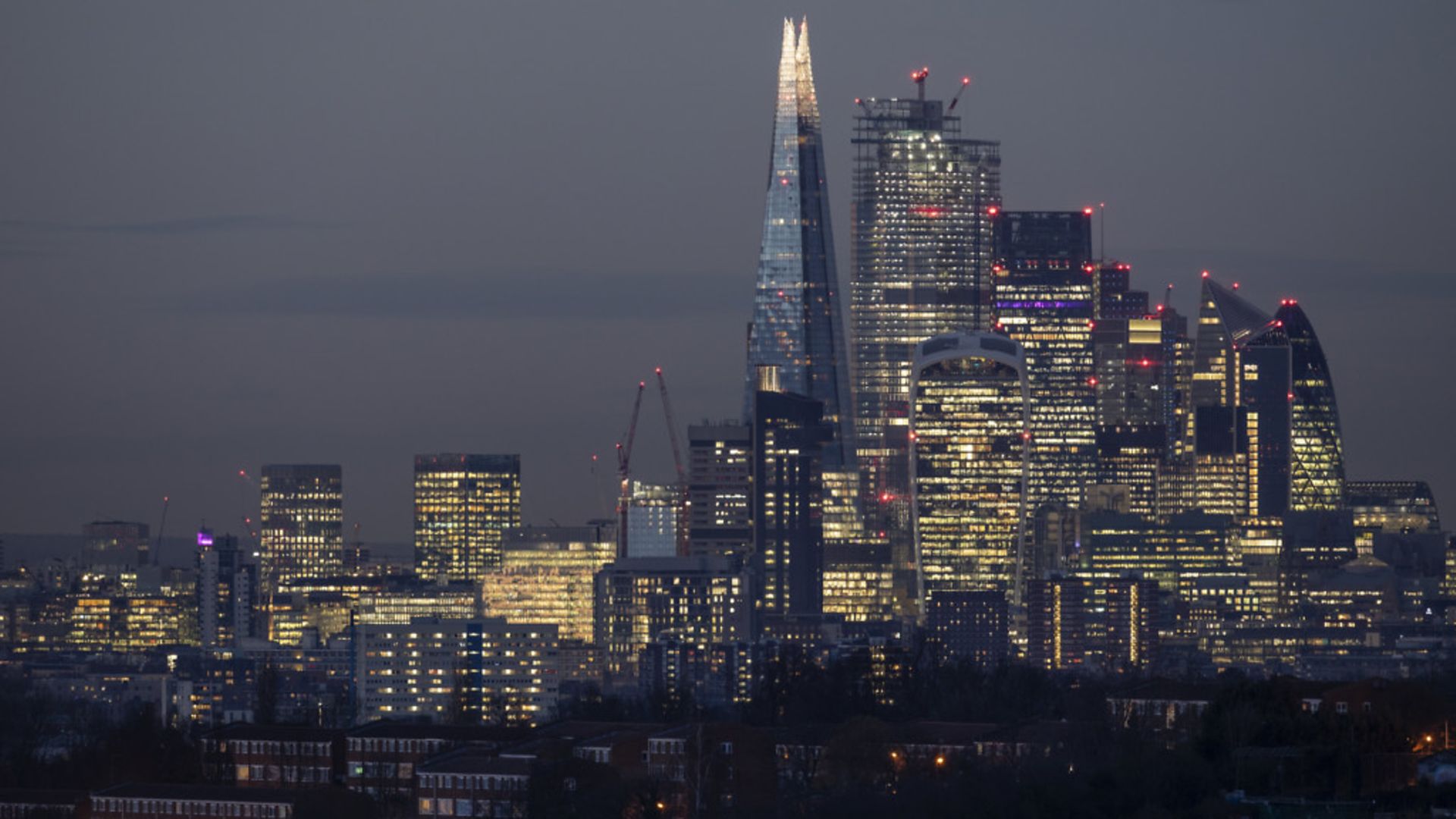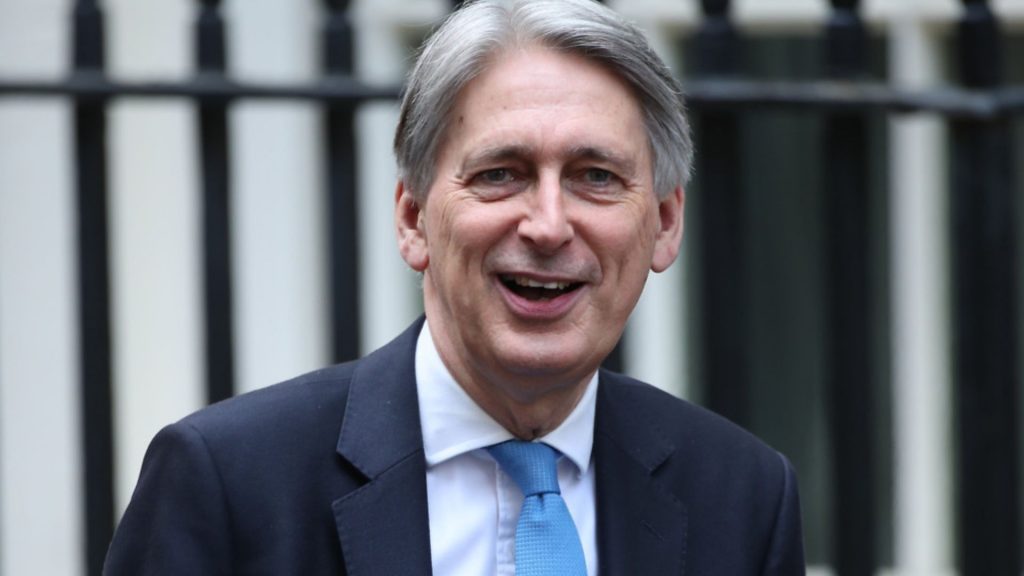
Some in the City of London may not deserve to be tainted by an apparent conspiracy that would dwarf Watergate.

On the surface of it, the story is devastating. The prime minister is accused of working with shadowy business figures to deliver disaster capitalism in its purest form – a no-deal Brexit which would tank the UK, but provide an opportunity for huge profits for hedge fund managers, several of whom have donated to Boris Johnson, and some of whom openly advocate for that outcome.
Regulatory data appears to confirm a huge spike in bets against the UK in the run-up to a possible no-deal – financial transactions that could indicate just such a plot. What’s more, the conspiracy is corroborated not only by a former chancellor of the exchequer – in the UK’s newspaper of record – but even the prime minister’s own sister.
This apparent scheme – outlined recently by, among others, Philip Hammond and Rachel Johnson – would appear to be a conspiracy bigger than any other previously recorded, one which would dwarf Watergate: A prime minister purposely destroying his own country, risking millions of jobs, and even vital medicine supplies, to enrich his friends. Given the scale of the allegations, and what’s at stake, it would be reasonable to expect proof of the very highest standard.
And this is where the problem lies – very little proof has been publicly offered, and the proof which has been published has been comprehensively debunked, often by independent, left-leaning, or pro-Remain figures.
The core of the allegations first appeared in an article on the independent publishing site Byline Times – which sometimes partners with this newspaper – which reported on a huge spike in ‘short’ positions on UK stocks in the weeks running up to a potential no-deal Brexit at the end of October.
A ‘short’ position is a bet that a stock will go down, rather than up, in the weeks to come – but such positions need re-issuing every few weeks. As the independent registered charity Full Fact noted, the Byline article suggesting a large spike in short positions appeared to rely on not understanding that short positions need refreshing. And once this was accounted for, Full Fact said, the spike disappeared.
This was far from the only issue with the story, as the ardently pro-Remain Financial Times has also noted: while the FTSE 100 is often described as a listing of “the UK’s 100 biggest companies”, most of the companies in the index operate around the world and make most of their money outside the UK – meaning shorting a FTSE company is by no means guaranteed to suggest any opinion on Brexit.
When the FT looked at the most-shorted companies, they found they tended to be firms such as Thomas Cook, which had long been shorted over fears about its crippling debt – proven to be well-founded – or others about which analysts and journalists alike had long expressed their own concerns. The expert financial journalists of the pink paper couldn’t find any reason to connect the shorts to Brexit, or find any pattern within them to suggest anything unusual.
Anyone who isn’t a financial specialist could be forgiven for holding suspicions around Boris Johnson’s conduct, of course – his track record is hardly one to inspire trust, and on the face of things there is much that might look fishy to a layman.
Crispin Odey, a prominent hedge funder, is a public proponent of no-deal and a donor to the prime minister. He openly advocates for no-deal and says it would benefit the UK, which leads many to believe it would benefit his own position.
But the reality, as left-leaning economist Frances Coppola noted in Forbes, is that Odey is in partnership with a pro-Remain businessman and his fund has ‘long’ (a bet a stock will go up) and ‘short’ positions in different stocks – and those long positions would have every chance of losing the money a short would gain in a no-deal. That aside, it would also be odd to engage in a huge corrupt enterprise via routine and legally-declared political donations.
Indeed, this particular conspiracy theory has at least shone a spotlight on exactly what it is the hedge funds are for: It is their role to try to make a lot of profit whenever their controllers know something the market doesn’t. This is why they seek every advantage they can, every scrap of information, anything to let them trade faster, any new and improved predictive model. This is also why we have rules against insider trading.
It is shocks that make money for hedge funds: Brexit was so profitable for many of them because Remain was expected to win and markets took a few hours to respond even to public signals that Leave was ahead. And several hedge funds allegedly had advanced notice thanks to private polls (this would be perfectly legal if so).
The 2016 vote shock was so significant that some funds ‘accidentally’ made money from bets they’d made against Sterling as a simple insurance policy against an outcome that wouldn’t happen.
Given that, the best tactic for a hedge fund in a pact with Downing Street and looking to really cash in on no-deal would be to get the prime minister to talk as if he would never, ever allow it and was doing everything to stop it – and then have him trigger it out of the blue.
Constant talk of no-deal, a public advertisement campaign promoting it, and similar, would be totally against their interests. The people who’d benefit most from that would be those pushing a secret campaign to cancel Brexit – and no-one is accusing Johnson of that.
What of the public statements of Phillip Hammond and Rachel Johnson, then? If the conspiracy theory has so little evidence and would make so little sense, why would people so close to the prime minister echo it? Surely they would have some evidence, or add credence to the theory?
Looking at how they couch their accusations, it doesn’t seem they do. Rachel Johnson’s comments, in a BBC interview, when asked why the PM seemed keen to pursue no-deal, were: “It could also be from – who knows? – people who have invested billions in shorting the pound or shorting the country.”
The “who knows?” doesn’t suggest any inside knowledge – she’s just advancing a theory heard in public. Hammond’s comments in the Times, in turn, cite Rachel Johnson’s comments. The online boosters of the theory then cite Hammond and Johnson as corroboration of their theory – a perfect circle of hype. Labour, for obvious reasons of government discomfort, have further inflated the conspiracy, with MPs raising questions in the House and demanding a full public inquiry.
To some readers of this column, none of the above may be persuasive. Even though it appears in a pro-Remain newspaper, cites established sources, and tries to lay out the logic against the theory, it won’t do enough to dispel people who feel there is something wrong going on.
That’s because conspiracism ties into some of our deepest feelings at a time we feel cheated, worried, or both. When we cannot understand why any government would want to act in the way it is – like appearing to advocate for economic catastrophe – sinister motivation at least provides a way to explain it.
When everything is chaotic, the idea that someone is in control of things – even if they’re malevolent – is oddly reassuring. At least there’s some kind of plan.
The problem with that is that it’s also dangerous, in a number of ways. Such thinking pushes society’s divides all the wider, as conspiracies we disagree with look so ridiculous to us – even as we believe the ones which support our pre-existing views.
To many on the pro-Remain side, Boris Johnson is an SEO (search engine optimisation) genius who mentions constructing buses from wine boxes in an interview in order to drive stories about his £350-million-a-week, side-of-a-bus claim further down Google’s search results, and repeats the trick time and again.
To those who are pro-Leave, this looks paranoid and wrong – especially given, as internet search experts will note, who was searching ‘Boris Johnson bus’ beforehand who’d never heard about his Brexit claims?
Another Brexit-related conspiracy which has gained traction made the front page of last weekend’s Mail on Sunday, which carried the suggestion that the EU had somehow helped draft the Benn bill, intended to force the prime minister to extend Article 50 beyond October 31 if no deal is struck.
The drafter of the legislation publicly tweeted he’d written the first draft himself with no involvement from anyone else – but that didn’t stop one of the country’s biggest newspapers splashing the story.
That conspiracy is divisive in the same way that the SEO one is, but is more dangerous as it comes at a time when MPs and others are being bombarded with death threats and other intimidation.
The act of previously established figures indulging in conspiracy – whether newspapers or a former chancellor – erodes our hopes of pulling back from the brink and avoiding a society where we only trust those who we like.
If figures who used to be reliable start regurgitating internet nonsense, they become no more reliable than the nonsense. We lose the hope of outlets which can be trusted by all sides of a debate, and with it the hope of a shared set of facts to begin our debate from.
Perhaps the most seismic consequence, though, of Remain believing in conspiracies is that it encourages all the wrong courses of action. If we believe that the British public was fooled and tricked into voting for Brexit, would hate it if they knew the truth, and that Brexit supporters are only motivated by corrupt ends, that suggests a very particular kind of campaign.
If we believe that by-and-large the referendum was fairly won (even if by a dishonest and problematic campaign), most voters don’t feel tricked, and not many have changed their mind, we would run a very different campaign to win a second referendum.
Conspiracies reinforce our relationships with the people who already agree with us, they give us a villain, and they give us something to fight for or against – but all too often they’re based entirely on lies. If we fall into their false narratives, we will be divided, be weaker, and when our beliefs are put to the test – they’ll fail.
Conspiracies give us comfort and give us community – but both are false. We have to learn to take the harder path.










